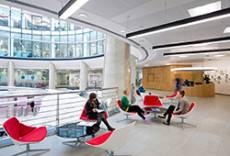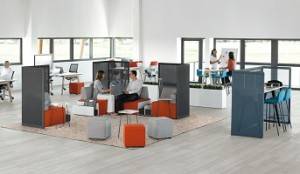May 6, 2014
US employers hold very mixed views on flexible working, claims report
It’s not just companies in the UK who appear to have mixed and sometimes contradictory views on the principles of flexible working. A new study from the US based Families and Work Institute in partnership with the Society for Human Resource Management has found that while more and more firms are open to the idea of working from home for permanent employees, other forms of flexible working such as job sharing, career breaks or sabbaticals to deal with personal and family issues. The 2014 National Study of Employers found that two-thirds (67 percent) of US organisations now allow employees to work from home at least some of the time, up from 50 per cent in 2008. In addition, 41 per cent of firms let workers decide their own working hours, compared to 32 per cent in 2008. However there are falls in the proportion of employers willing to let staff work flexibly in other ways.
























April 7, 2014
Can building design presage a fall from grace for the world’s tech giants?
by Mark Eltringham • Architecture, Comment, Technology, Workplace design
(more…)